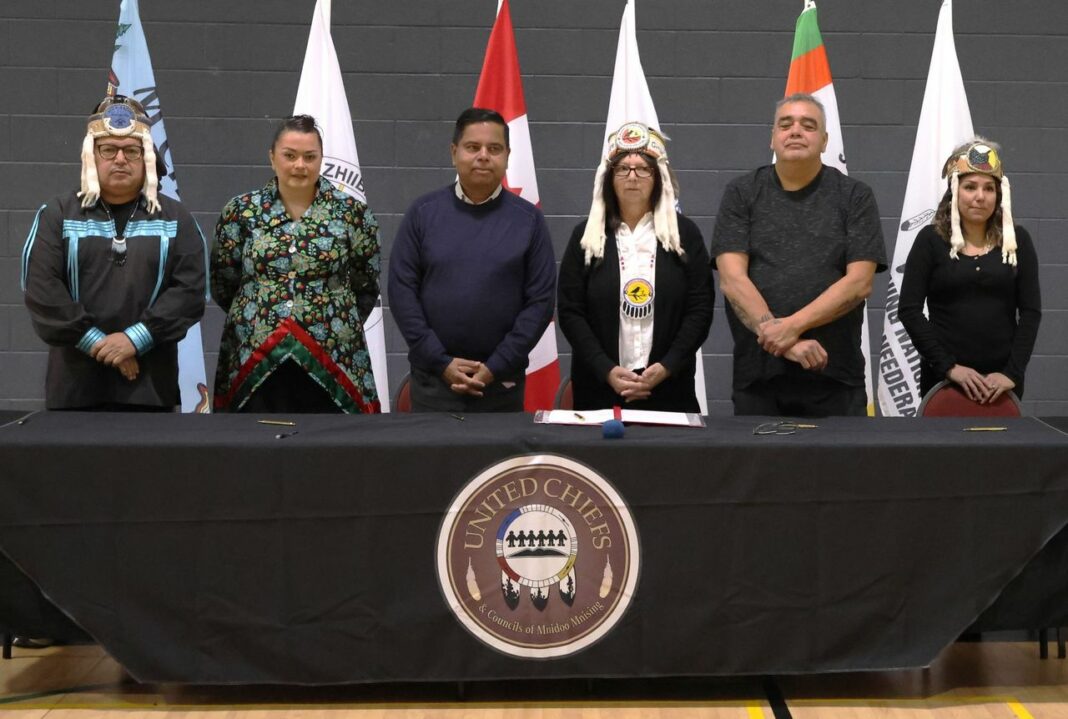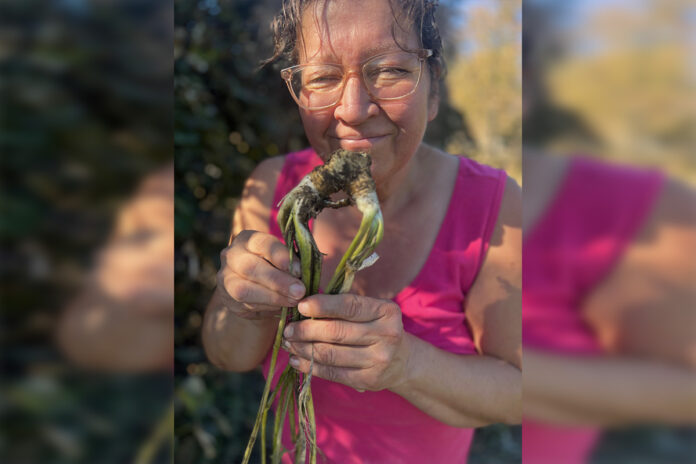Canada formally apologizes to five Anishinaabeg First Nations
October 26, 2024 — (Manitoulin Island, ON) — Crown–Indigenous Relations and Northern Affairs Canada and Aundeck Omni Kaning First Nation, M’Chigeeng First Nation, Sheguiandah First Nation, Sheshegwaning First Nation and Zhiibaahaasing First Nation
Today, the Honourable Gary Anandasangaree, Minister of Crown–Indigenous Relations, on behalf of the Government of Canada, formally apologized to Aundeck Omni Kaning, M’Chigeeng, Sheguiandah, Sheshegwaning and Zhiibaahaasing First Nations for past wrongs relating to the Crown’s mismanagement of their monies in the late 1800s and the negative impacts experienced by the five communities as a result.
“Acknowledging and apologizing for past wrongs is the right thing to do,” said The Honourable Gary Anandasangaree, minister of Crown–Indigenous Relations. “This settlement with Aundeck Omni Kaning, M’Chigeeng, Sheguiandah, Sheshegwaning and Zhiibaahaasing pays a longstanding debt that is rightfully owed to the First Nations. Nothing can undo the past or the pain it has caused, but it is crucial that we listen to Indigenous communities on how to best move forward. It is our hope that today’s apology will be a turning point in our Nation-to-Nation relationships with these five First Nations as we continue to co-develop shared solutions and build a better future based on mutual respect and true partnership.”
“This has been a long time coming.” said Aundeck Omni Kaning Chief Patsy Corbiere. “It is good to finally see some compensation coming to the First Nations.”
”“This is a long overdue moment. We look forward to a positive result for our First Nation,” said M’Chigeeng First Nation Chief Morgan Hare. “This long-overdue apology was delivered at a ceremony held today with First Nations leadership, Elders, youth and community members at Aundeck Omni Kaning First Nation.
“Community partnerships have proven that working together on the Manitoulin Project is the best way to strengthen our communities,” said Sheguiandah First Nation Chief Jason Aguonie, “which creates a positive future for generations to come.”
Sheshegwaning is glad that Canada has taken this important step to resolve such long-standing breaches of fiduciary duty,” said Sheshegwaning First Nation Chief Alana Endanawas.
“Our community suffered the loss of these funds for too many years,” Zhiibaahaasing First Nation Chief said Irene Kells. “We look forward to finally building for our families and in line with our vision.”
Approximately 100 people were in attendance.
At the ceremony, the Government of Canada and the First Nations also commemorated a claim settlement that provides a total of $447.9 million in compensation to be shared among the five First Nations. This financial settlement resolves three historical claims which date back to the late 1800s and are the focus of the apology delivered today. The apology relates to the Crown’s mismanagement of the First Nations’ monies from Nations – to build roads and open up Manitoulin Island for settlement. In doing so, the Crown failed to act honourably and uphold its relationship with the First Nations, going against the spirit and intent of the Treaties, breaking its promises and creating injustices which continue to be felt by the communities today.
This formal statement of apology and co-developed settlement are key steps toward healing and reconciliation with Aundeck Omni Kaning, M’Chigeeng, Sheguiandah, Sheshegwaning and Zhiibaahaasing First Nations. This is also an opportunity for all people in Canada to learn about our shared history and the harmful legacies of colonialism so we can move toward greater understanding and respect.This formal statement of apology and co-developed settlement are key steps toward healing and reconciliation with Aundeck Omni Kaning, M’Chigeeng, Sheguiandah, Sheshegwaning and Zhiibaahaasing First Nations. This is also an opportunity for all people in Canada to learn about our shared history and the harmful legacies of colonialism so we can move toward greater understanding and respect.
Confronting our history and addressing past wrongs is critical to advancing reconciliation in Canada and rebuilding trust with First Nations communities.





